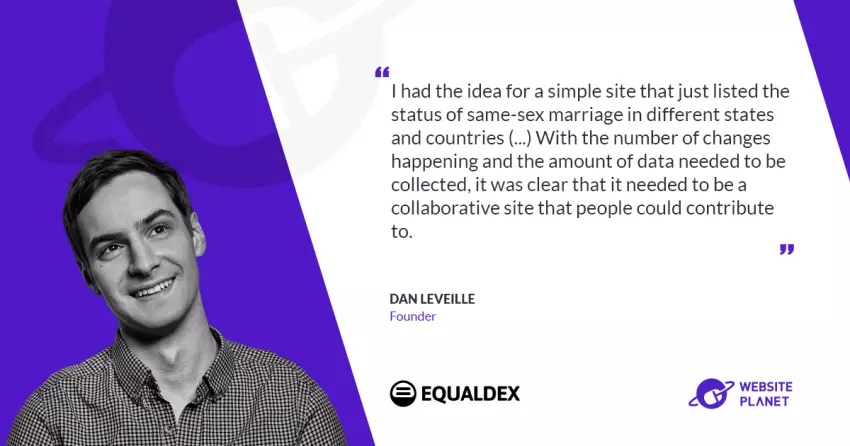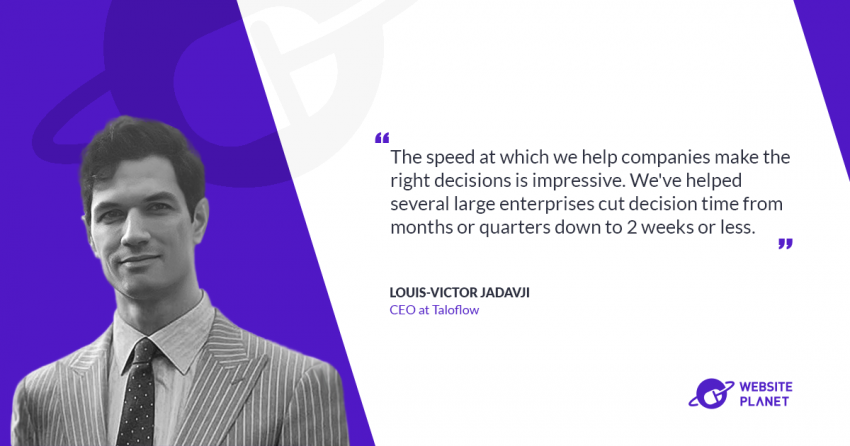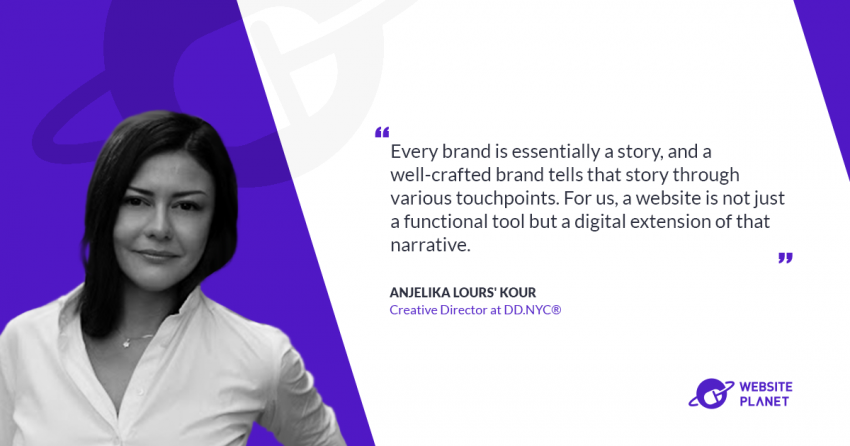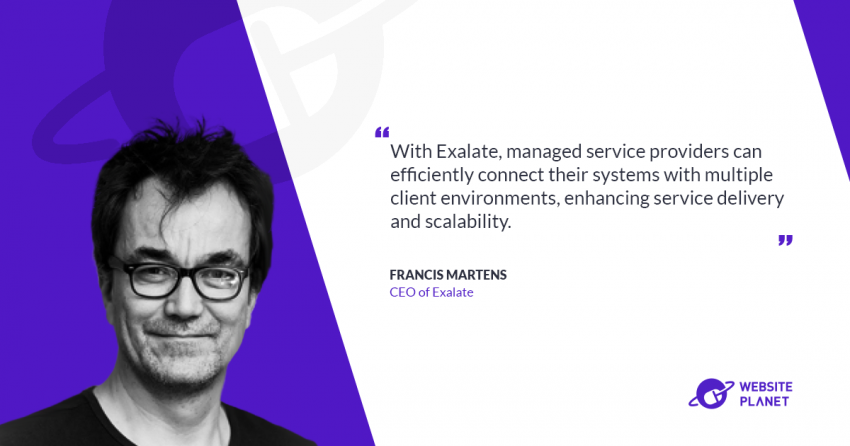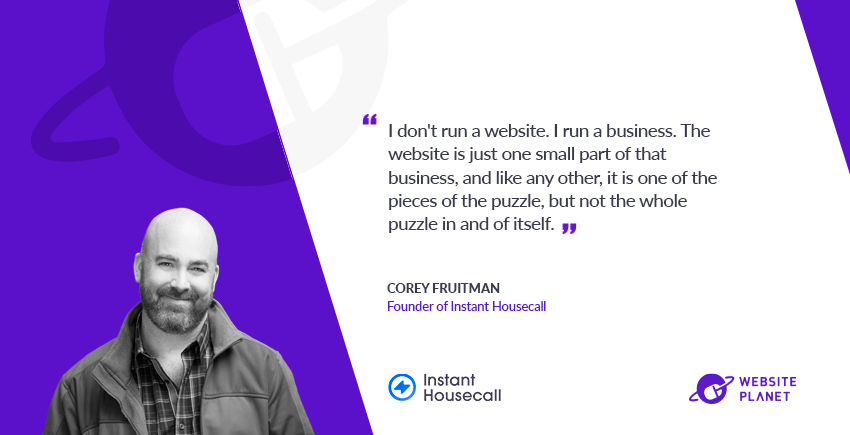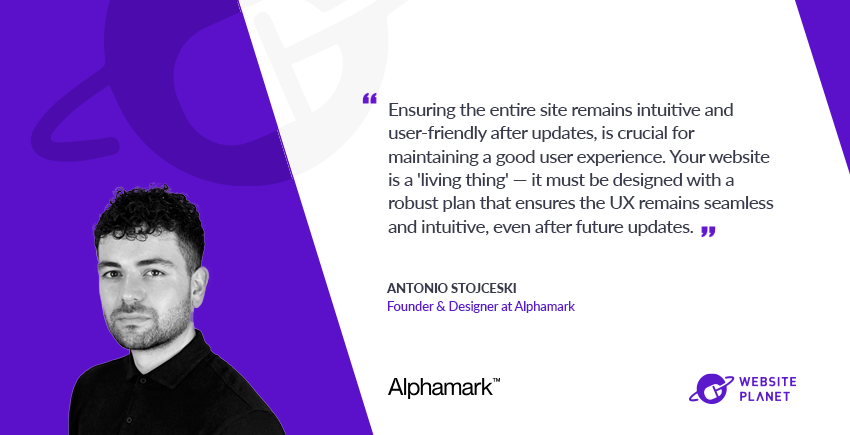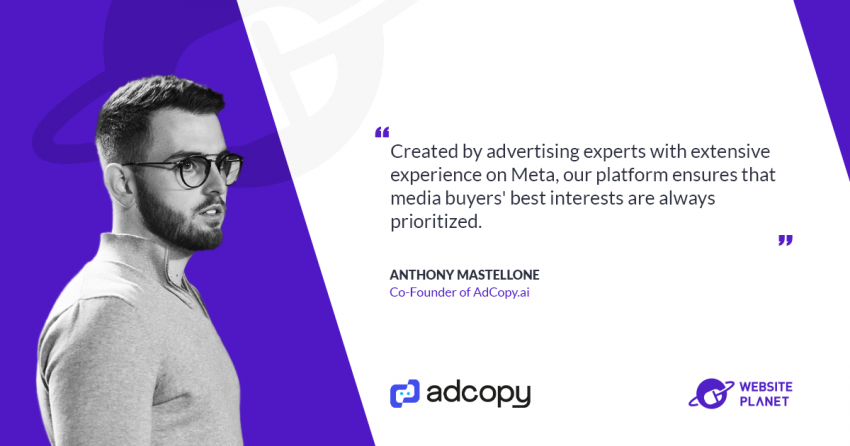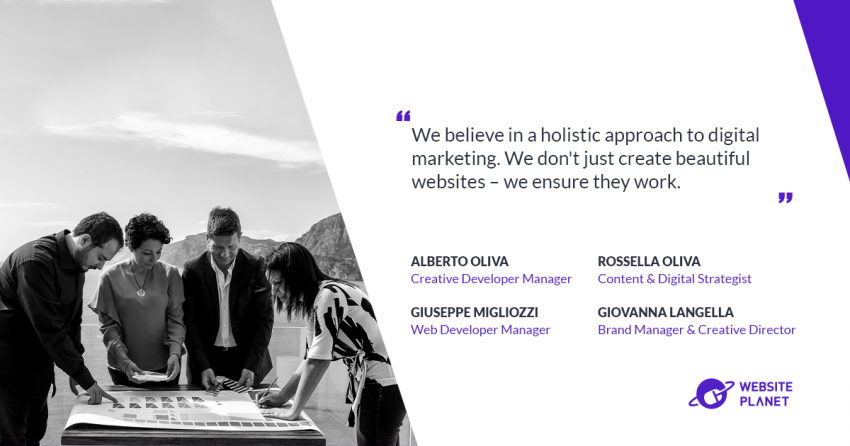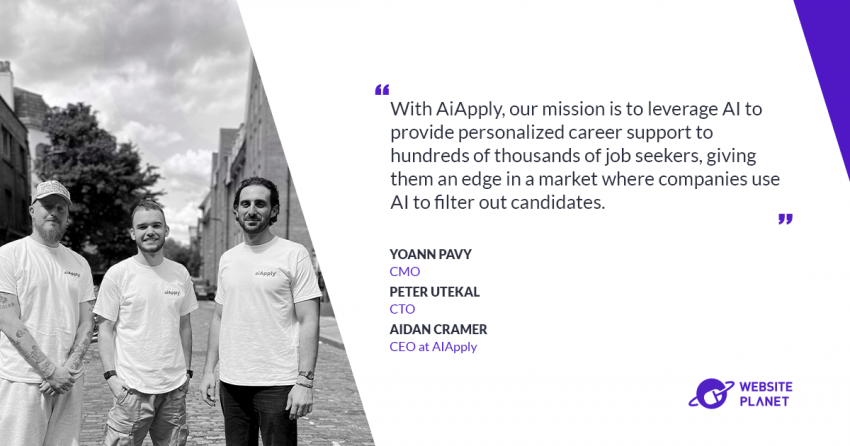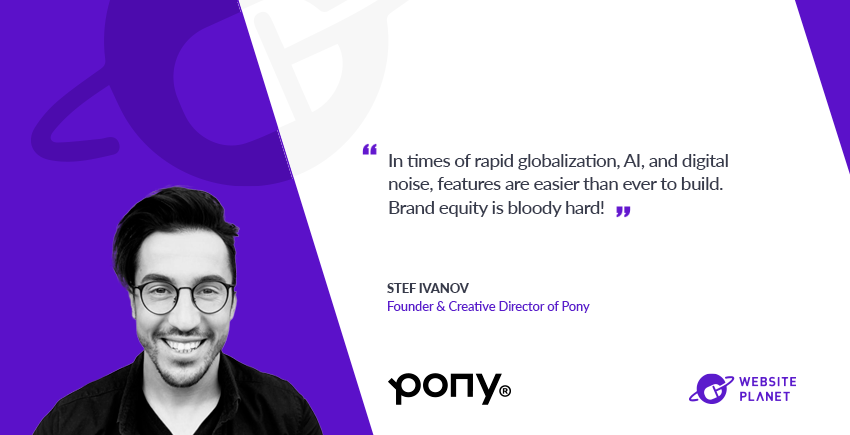Equaldex is a collaborative project that tracks LGBTQ+ rights across the world, with important information about laws, milestones, discrimination and much more. The project was covered in several publications, such as The New York Times, and helps different partners with their data.
In this special interview for
Website Planet we talked with Dan Leveille, founder of Equaldex, to know more about the platform, how they collect and fact-check data, the Equality Index they created and the tech challenges they faced.
When came the idea of creating Equaldex and the concept of being a collaborative project?
I had the idea for Equaldex after realizing there wasn’t a good place to track the progress of LGBTQ+ rights. It was around 2008, when a lot of US states were proposing laws to legalize same-sex marriage. I kept following the news and realized that it was difficult to track which states legalized it and which ones were coming soon.
I had the idea for a simple site that just listed the status of same-sex marriage in different states and countries, and as I kept thinking about it, I realized it was a much bigger project. With the number of changes happening and the amount of data needed to be collected, it was clear that it needed to be a collaborative site that people could contribute to.
What are the biggest challenges in maintaining Equaldex online and presenting such important information?
One of the challenges Equaldex is always running into is categorizing and “quantifying” human rights. My vision for Equaldex is to collect data in a structured format so that it can be presented and analyzed in compelling and interesting ways — displaying it on color-coded maps, timelines, charts, and calculating the Equality Index.
To do all that, Equaldex needs to categorize and quantify everything. It’s easy when you can say “Is homosexuality legal? Yes or no.” But of course, it’s not that simple in many countries, with nuances and exceptions to the laws. We’ve had to figure out how to handle cases where it’s legal, but gay people are still prosecuted or systematically discriminated against.
Another major challenge is verifying information from the more conservative countries. Some of these countries have very little information about their LGBTQ+ laws or public sentiments, usually because the subject is pretty taboo. It’s difficult to verify information when there’s little press cover about LGBTQ+ issues, especially if there’s little freedom of press. In many of these cases, we rely on reporting from human rights organizations or reputable investigative journalists.
Can you explain to us the process of receiving an update, checking the information and the source and confirming it? Do you have moderators?
Yes, Equaldex has a team of moderators, but the majority of edits are done by editors who sign up to the site. We have a Discord community to discuss and collaborate on Equaldex, especially when it comes to new laws. Usually law changes are pretty big news so it’s difficult to miss if you follow LGBTQ+ news.
Once we hear of an update, we first verify that the law has fully passed and confirm that it either went into effect already or has a future date. Making the change is pretty simple, we basically submit the new law to Equaldex and just define a start date and update the current law’s end date.
Once it’s been submitted, this new law will be highlighted on the page showing that it’s going into effect soon. Equaldex then automatically updates as soon as the law goes live (the maps, charts, Equality Index, etc.).
How is the Equality Index calculated?
The Equality Index is Equaldex’s way to quantify the status of LGBTQ+ equality in a region. It’s a score from 0 to 100, and 100 means that the region has reached “full equality” both in terms of the law and the public’s views. The index is calculated by averaging two scores: the Legal Index and the Public Opinion Index.
The Legal Index measures the country’s laws and how “Equal” they are on a scale of 0 to 100. For example, if homosexuality is legal, the score would be “100” and if a country imposes the death penalty for homosexual acts, this would be measured as “0.” This scoring system is applied to every law and then averaged using a weighting system.
Similarly, the Public Opinion Index scores available survey data for each region. The general idea is: “What % of people answered the ‘equal’ answer in this survey?” For example, if 74% of people answered that they support same-sex marriage, this would be given a score of “74.” This is then average with other available survey data.
The Equality Index is still a work in progress, but it’s a good benchmark to compare and contrast regions at a high level. Currently there’s a gap in public opinion data in many of the more conservative countries since they are sometimes not included in global surveys.
In your partner ecosystem you have four travel companies. Can you explain to us the importance of those partnerships and the information shared?
As a LGBTQ+ person, it’s important to do research when traveling to another country. Unfortunately, there are some popular travel destinations where being gay is illegal or not widely accepted by the public.
Many travel companies — especially ones that are geared towards LGBTQ+ travelers — want to make sure their customers have easy access to local laws. Out of Office, for example, offers tailored travel experiences for LGBTQ+ travelers and on each of their travel destination pages, they show Equaldex’s data so travelers can know what laws affect them in case they need to take precautions when traveling.
In the almost nine years that Equaldex is online, what were the biggest achievements and important moments?
Hearing individual stories about how people use Equaldex when traveling is always really rewarding to hear that it helps individual people’s lives.
It definitely took a little while for our initiative to really get noticed on a wider scale, but seeing it mentioned by reputable publications, schools, and organizations was really rewarding, too. The New York Times recommended Equaldex for LGBTQ+ travelers, many prestigious schools like Harvard and Stanford recommend it to their LGBTQ+ students, and it’s been referenced in reports and resources from the US, the UK, and the United Nations. It really helps validate the work we’re putting into the site.
What are Equaldex’s plans for the future (3-5 years)?
I’ve been seeing a lot of interest in Equaldex’s Equality Index since it was first launched so this will likely continue to be a focus for the near future.
I previously mentioned that there’s a gap in data for public opinion information when calculating the Equality Index. The next major initiative that’s coming very soon is a “region ratings” system. Equaldex users will be able to rate various aspects of LGBTQ+ life in regions they’ve lived or visited — from safety to workplace discrimination to healthcare to nightlife — and these ratings will be publicly displayed on each region’s page.
This will not only give people a deeper understanding of what it’s like to be LGBTQ+ in specific regions, but it’ll also help fill in the missing public opinion data in the Equality Index. Launching and building out this feature will be a big part of 2023.
Two other high-level initiatives that are planned are to improve Equaldex’s existing feature set (some features are nearly 9 years old now and need an overhaul) and to improve the quality of content.
